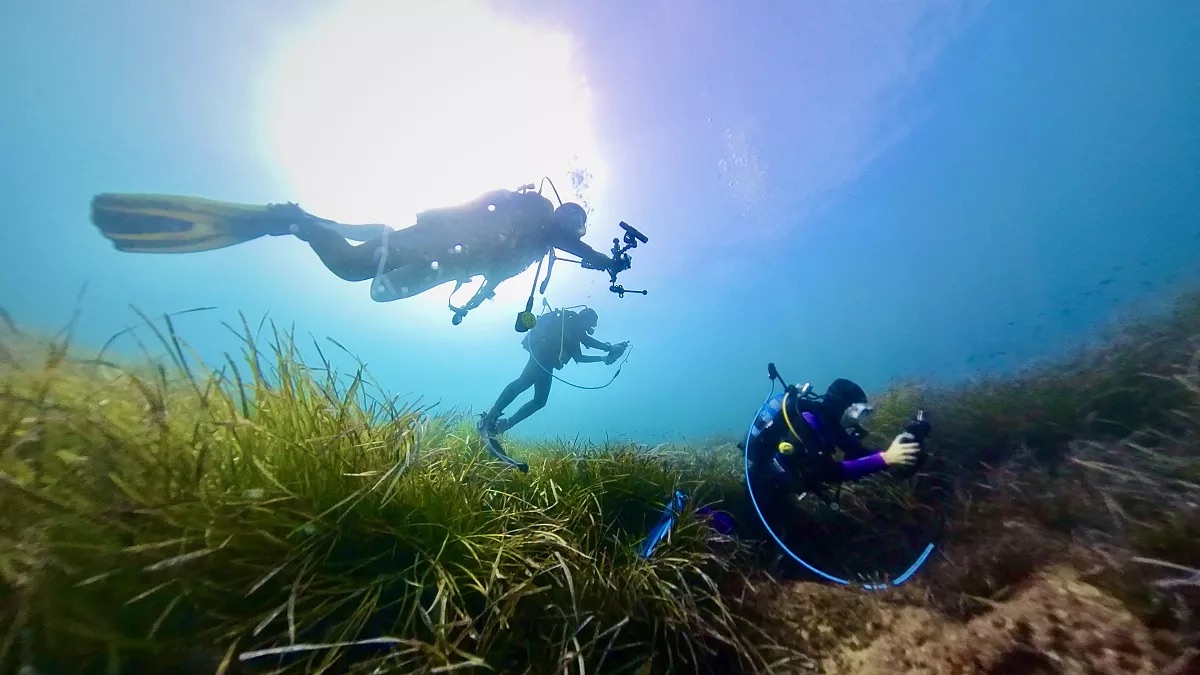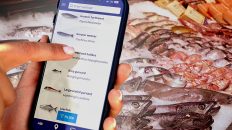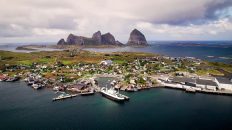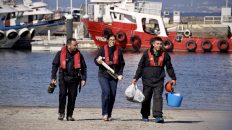Across Europe, blue tech startups are charting new waters in ocean technology, tackling some of the most pressing challenges — from renewable energy and blue biotechnology to cutting-edge port logistics and aquaculture. With support from European Union initiatives like BlueInvest, many of these innovators are securing the funding needed for scaling up.
Diving into future: WSense and the “Internet of Underwater Things”
At the Secche della Meloria marine protected area off Livorno, Italy, researchers are testing novel underwater communication tools using underwater WiFi. With specially adapted smart tablets, two marine biologists could keep in touch wirelessly while diving.
The difference between underwater WiFi and land-based WiFi is that traditional WiFi relies on high-frequency radio waves, which cannot travel far underwater, especially in salt water. Underwater WiFi, on the other hand, uses sound waves, as sound travels further through water. This allows researchers to communicate over much greater distances, similar to how many marine species, such as dolphins and whales, communicate.
The technology, developed by Rome-based company WSense, enables divers to send messages, track their locations in real-time, and collect geolocated data, making marine research dives safer and more efficient.
WSense’s innovations have far-reaching potential, from preserving marine environments and cultural heritage sites to monitoring aquaculture and offshore energy installations. The company’s success has been amplified by BlueInvest, an EU program that connects ocean-focused startups with investors. Winning the BlueInvest award in Ocean observation category put WSense in the spotlight, attracting a diverse network of European investors, says Chiara Petrioli, WSense’s founder and CEO: “It is a real European dimension that makes us stronger and allows us to have the ambition to scale up globally, bringing with us the revolution of the Internet of Underwater Things.”
Sustainable inland aquaculture: Aquaponics Iberia’s “Fish n’ Greens” vision
In Torres Vedras, Portugal, Aquaponics Iberia has developed a symbiotic system where fish and plants grow together using aquaponics — a combination of inland aquaculture and hydroponics, the process of growing plants without soils. Fish waste feeds the plants, which in turn purify the water for the fish. According to the company, this system uses 95% less water than conventional inland fish farming and could revolutionize the industry.
The startup, which raises Australian perch — a high-omega-3, sustainable “vegetarian fish” — is seeking funding to scale up with a modular “Fish n’ Greens” concept for urban environments. According to João Cotter, CEO of Aquaponics Iberia, these hubs can be adapted to various spaces and replicated across European cities, supplying local fresh food to retailers, restaurants and school canteens and organising guided tours for school groups.
BlueInvest has played a critical role in the company’s growth, helping it refine its business plan and connect with potential investors.
Inspiring the next generation
The sustainable and easy to maintain circular system isn’t just a unique selling point — it also has an educational mission. The Fonseca Benevides Secondary School in Lisbon has joined the startup’s educational project. Students there manage their own aquaponics system, learning biology, chemistry, and math through hands-on experience.
“It shocked me how sustainable it is, having plants and fish working together to support each other,” says student Leonor Brás. The programme, which complements traditional gardening methods, helps students understand the potential of sustainable food systems.
From underwater communication networks to circular fish-farming systems, Europe’s ocean startups are pioneering promising new solutions – and programmes like BlueInvest can help them grow and thrive.





